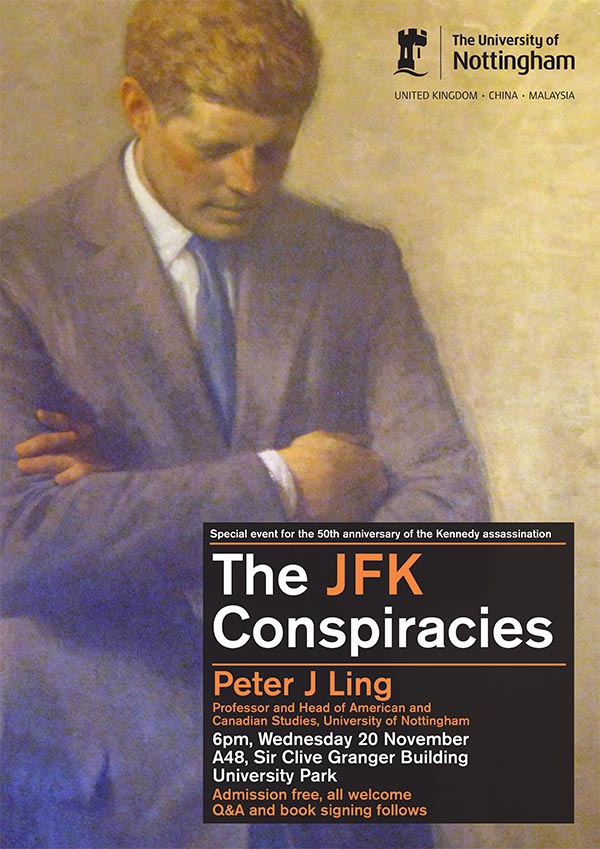Public Lecture by Peter J Ling, Professor and Head of American and Canadian Studies at The University of Nottingham
November 22 1963. For decades afterwards, most Americans,and many people around the world, could respond instantly to the question:“Where were you when you heard the news about the Kennedy assassination?” The shooting was regarded as a “flashbulb moment,” indelibly fixed in personal and national memory. Half a century later, most Americans, and most of the world’s population, have no memory of the event; they are too young. What they know instead is that mystery surrounds the President’s death. Since the 9/11 attacks, another flashbulb moment has displaced the Kennedy assassination in popular memory. Yet the dissatisfaction with official accounts and the circulation of alternative conspiracy theories about the assassination seem rooted in the horror and cynicism that the crimes of 22 November 1963 spawned.
Who killed President Kennedy? Why did the Warren Commission lie? Why did Jack Ruby murder Lee Harvey Oswald? Why are there so many different theories about the assassination?
Please join us to mark the 50th anniversary of the Kennedy Assassination on November 20th, with a public talk by Professor Peter J Ling, head of American and Canadian Studies at the University of Nottingham and author of a new Kennedy biography. He will offer a guide to some of the conspiracy theories that have gained credibility in the last half century,including the allegations made most influentially by Oliver Stone’s movie JFK that Kennedy was killed by the CIA, the US military chiefs, the FBI, and probably JFK’s successor, Lyndon Johnson, to protect the military-industrial complex; the role of the Warren Commission, which reported in 1964 that Kennedy was killed by Lee Harvey Oswald, motivated by a desire for fame rather than by political objectives; the Kennedy family's attempts to manage the investigation to conceal certain facts; and the hidden conspiracies that lie behind Kennedy’s death.
